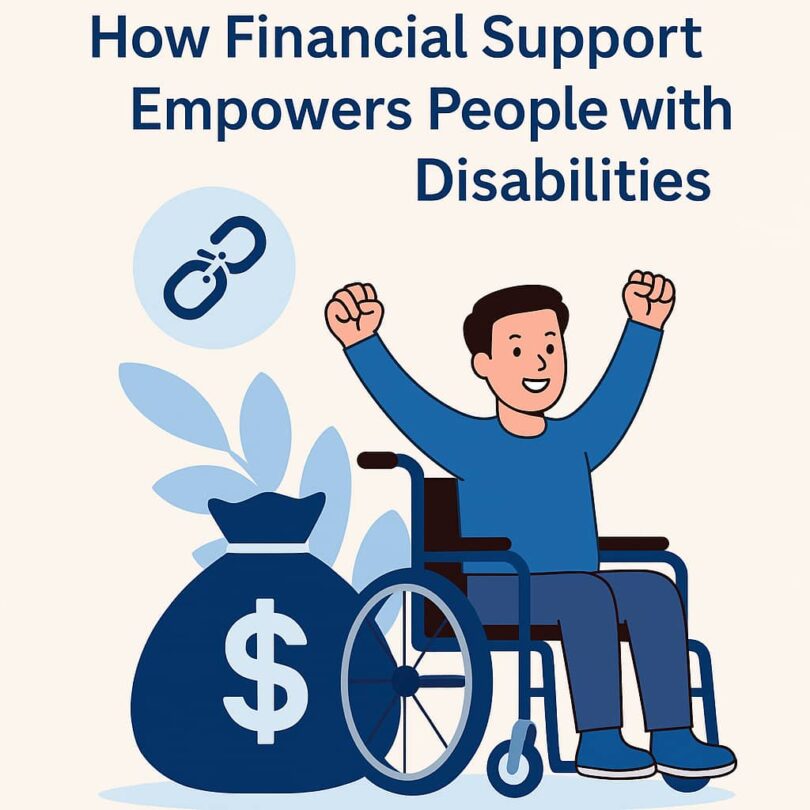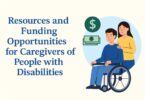Advertisements
Financial support for people with disabilities is more than just an aid. It is a pathway to independence, inclusion, and empowerment. Across the world, millions of individuals face barriers that limit access to education, employment, healthcare, and housing. With the right financial resources, these barriers can be reduced, giving people with disabilities the tools to thrive and contribute fully to society.
This article explores how financial support empowers people with disabilities, the different types of assistance available, and why investing in these programs benefits not only individuals but also entire communities.
Understanding the Challenges People with Disabilities Face
Living with a disability often comes with additional expenses that many people without disabilities do not encounter. These can include:
Advertisements
-
Assistive devices such as wheelchairs, hearing aids, and communication tools
-
Home modifications to improve accessibility
-
Medical expenses not fully covered by insurance
-
Transportation services adapted to specific needs
Without financial support, these costs can become overwhelming. The result is often reduced independence, fewer educational opportunities, and limited career growth.
The Role of Financial Support in Empowerment
Financial support programs directly reduce the burden of extra costs, making it possible for people with disabilities to pursue their goals. The empowerment provided through funding manifests in several key ways.
Advertisements
Access to Education
Scholarships and grants for students with disabilities open doors to higher education and vocational training. By reducing tuition costs and funding assistive technology, these programs ensure that students can learn on equal footing with their peers. Education then becomes the foundation for future independence and career advancement.
Employment Opportunities
Workplace grants and subsidies encourage companies to hire and accommodate employees with disabilities. Funds may cover adaptive technologies, modified workstations, or specialized training. Financial support in the workplace ensures that individuals with disabilities are not overlooked but valued for their skills and potential.
Independent Living
Grants for home modifications such as ramps, wider doorways, and accessible bathrooms make it possible for individuals to live independently. Support with utility bills, rent, or home ownership programs further strengthens independence and reduces reliance on institutional care.
Healthcare and Well-being
Medical costs often create a significant barrier for people with disabilities. Financial aid can cover therapies, medications, and assistive devices. Access to healthcare is not just about treatment but also about overall well-being, confidence, and the ability to participate fully in community life.
Types of Financial Support Available
There are multiple sources of financial assistance for people with disabilities:
-
Government Grants and Benefits
Federal and state programs provide funding for healthcare, housing, education, and employment. Programs like Supplemental Security Income (SSI) and Social Security Disability Insurance (SSDI) in the United States are vital examples. -
Nonprofit Organizations
Many nonprofits focus on providing grants for equipment, therapy, and daily living expenses. These organizations often fill gaps where government programs cannot fully meet needs. -
Educational Scholarships
Colleges, universities, and foundations offer scholarships specifically for students with disabilities, ensuring equal access to higher education. -
Employer-Sponsored Programs
Some employers provide financial assistance for adaptive technologies and workplace accommodations, supporting career growth and inclusion. -
Community Resources
Local councils and community-based initiatives frequently provide small grants for transportation, accessibility upgrades, or personal support services.
The Economic and Social Benefits of Financial Support
Investing in financial support programs is not just beneficial for individuals with disabilities but also for society as a whole. When barriers are removed, more people can participate in the workforce, contribute to the economy, and live independently. This reduces long-term costs of institutional care and increases productivity.
Socially, financial empowerment fosters inclusion. Communities benefit from diverse contributions and perspectives, which strengthens innovation and cohesion.
Success Stories of Empowerment
Real-life examples illustrate how financial support breaks barriers.
-
A student who received a disability scholarship was able to pursue a degree in technology, leading to a successful career.
-
A family that accessed a home modification grant enabled their child with mobility challenges to move freely and safely around the house.
-
A veteran who used federal housing support adapted his home and regained independence.
These stories show that financial support is not charity but empowerment that creates long-lasting change.
How to Access Financial Support
For people with disabilities and their families, knowing where to start is often the biggest challenge. The following steps can help:
-
Research federal and state government websites for official programs.
-
Contact local disability advocacy organizations for guidance on nonprofit grants.
-
Explore scholarship databases for disability-specific education funding.
-
Ask employers about workplace support programs.
-
Stay connected with community centers and social services for local initiatives.
Conclusion
Financial support for people with disabilities is a powerful tool for breaking barriers. It creates access to education, employment, healthcare, and independent living, while also delivering economic and social benefits to communities. When financial obstacles are removed, people with disabilities are empowered to pursue their goals, achieve independence, and contribute to society with dignity.
Empowerment through financial support is not only the right thing to do but also a smart investment in a more inclusive and productive future.
Advertisements



Leave a Comment